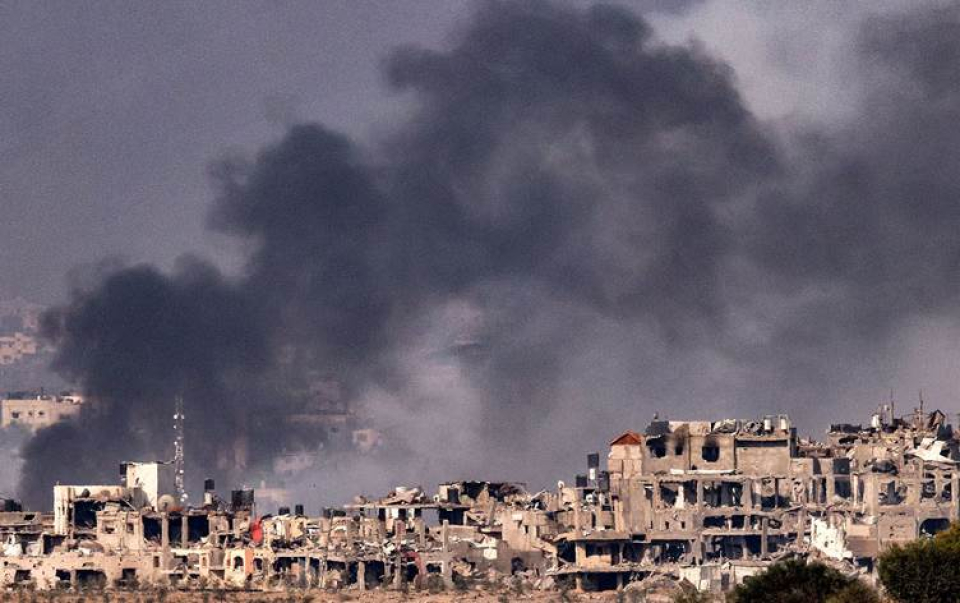Late on Wednesday, Iraq officially expressed its support for Jordan's decision to recall its ambassador to Israel in protest of the ongoing conflict in Gaza, which has claimed the lives of over 8,700 people.
In a statement issued on Wednesday, Jordan's foreign ministry announced the immediate recall of Jordan's ambassador to Israel in strong protest against "the ongoing Israeli war causing the loss of innocent lives in Gaza and creating an unprecedented humanitarian crisis."
Jordanian Foreign Minister Ayman Safadi emphasized that the war on Gaza is not only causing a humanitarian catastrophe but also poses a threat to regional security.
According to the health ministry, Israel's relentless attacks on the Gaza Strip have resulted in the tragic loss of 8,720 lives, including 3,648 children. These casualties have occurred during the 27th day of the conflict, which was triggered after Hamas militants crossed the Gaza-Israel border, leading to the death of approximately 1,400 people, as reported by Israeli figures.
Iraq's foreign ministry released a statement expressing its support for Jordan's principled stance. They endorsed the Hashemite Kingdom of Jordan's decision to withdraw its ambassador from Israel and called for an immediate halt to the attacks on Gaza and the Palestinian people.
Earlier in the week, Iraq's top military spokesperson announced that Baghdad was preparing a second aid package, primarily consisting of medical supplies, for the besieged Gaza Strip in collaboration with Egyptian authorities.
The conflict in Gaza has garnered significant sympathy across the Arab world, where the Palestinian cause enjoys widespread support.
During a peace summit in Egypt last week, Iraqi Prime Minister Mohammed Shia' al-Sudani criticized the global failure to support human rights and justice in the ongoing conflict. He stressed, "Palestine stands as a living testament to this recurring failure."
Jordan, which is home to a population of over two million Palestinian refugees, established diplomatic relations with Israel in 1994, becoming the second Arab state to do so after Egypt in 1979.

















